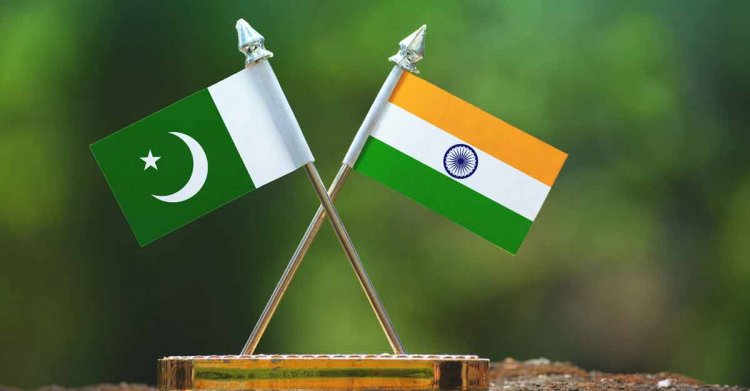India - Pakistan: Onus on Pakistan to Restore Normalcy
STORIES, ANALYSES, EXPERT VIEWS

Even as Sri Lanka goes through a serious economic (and now political) crisis, Pakistan’s economic problems have been marked by acute shortages in its foreign exchange reserves falling to $14.9 billion in February 2022 from $18.8 billion in August 2021; falling GDP from $315 billion to $292 billion in the past four years.
Pakistan’s dependence on Saudi Arabia
Pakistan has depended on doles from Arab states, notably Saudi Arabia and the UAE. Imran Khan, however, was getting ready to join an Islamic grouping being set up by Malaysia and Turkey, obviously to challenge Saudi Arabia. An infuriated Saudi Crown Prince Salman, backed by UAE’s Crown Prince Sheikh Mohammed Zayed, turned the economic screws on Pakistan.
Not surprisingly, writs G Parthasarathy (Chancellor, Jammu Central University & former High Commissioner to Pakistan) “Saudi Arabia was the first foreign country that Shehbaz visited. Saudi purse-strings have been opened thereafter. A promise of $2 billion has been made. He also met the UAE Crown Prince. Shehbaz was, however, given a reality check, when he found that his powerful Arab neighbours now adopt a new approach to relations with India. The Saudi-Pakistan joint declaration with Saudi Arabia read: ‘Saudi Arabia welcomed the statements of Pakistan mentioning keenness to find a solution to all disputes with India, including the J&K dispute. The two sides stressed the importance of dialogue between Pakistan and India in order to resolve the issues between the two countries.’ This, says Parthasarathy “is different from what Pakistan expected, including references to UN resolutions.”
India’s improved relations with Gulf countries
Shehbaz has assumed power, writes Parthasarathy “amidst significant changes that have taken place in India’s relations with Pakistan’s immediate neighbours in the oil-rich Gulf region, and across the Indian Ocean. This is more so in countries like Saudi Arabia and the UAE, which have found India to be low-key, but helpful and a useful country for investment in the oil and gas sectors. Moreover, the close relationship between the Indian Navy and the US 5th Fleet in Bahrain has provided a useful maritime cover across the Persian Gulf and the Indian Ocean……”
Rawalpindi now discreet about the activities of terrorist groups
Pakistan army chief General Bajwa is scheduled to retire in November. While the ISI continues providing support to jihadis in Kashmir, Pakistan is increasingly feeling the heat from the pressures of the Financial Action Task Force for its support to terrorism in India. Rawalpindi, notes Parthasarathy “is now more discreet about the activities of terrorist groups like the Lashkar-e-Taiba and Jaish-e-Mohammed. Interestingly, there now appears to be more focus by the ISI on promoting cross-border terrorism in Punjab.”
Challenges for Pakistan: Pakistan, meanwhile, faces serious challenges on its borders with Afghanistan, from the Tehriq-e-Taliban, which operates both in the Pashtun tribal areas bordering Afghanistan, and across the disputed Durand Line. Pakistan also faces similar problems in Balochistan, where there has been strong resentment at the growing Chinese presence, particularly in the Port of Gwadar.
India should continue its diplomatic and economic pressures on Pakistan
India, suggests Parthasarathy “should continue its diplomatic and economic pressures on Pakistan till Rawalpindi dismantles the infrastructure of terrorism on territory under its control, in Pakistan-Occupied Kashmir. In the meantime, New Delhi should establish a credible back-channel to discuss ways to move ahead for establishing a normal relationship with Pakistan. As a first step, ambassadors have to be appointed to take charge soon. Much will, however, depend on whether Pakistan continues supporting terrorism…..We can, in due course, even restore bus and air services while having a normal people-to-people relationship. India can even consider a phased restoration of SAARC if Pakistan fully implements the provisions of the SAARC Free Trade Agreement. The ball is in Pakistan’s court.”
















